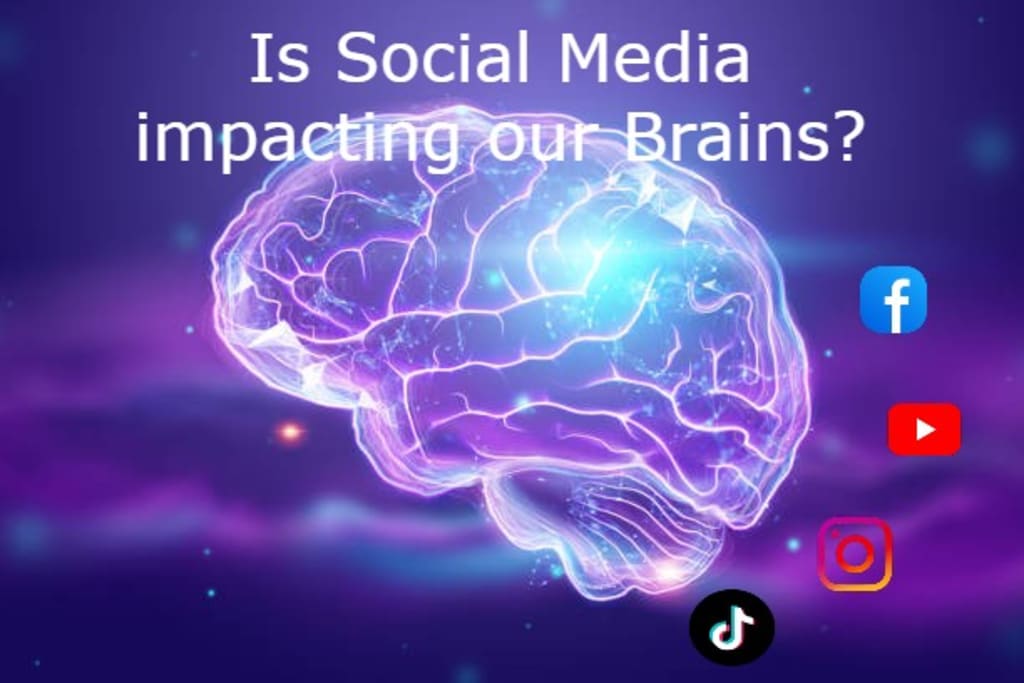A Deep dive into your Mind
Social media age

Can we time-travel back to the 1990s and see if we had all these amenities? Would that generation have survived without the Internet and social media? If the solar storm really happened, could we stay for a few weeks without the internet and social media without becoming depressed?
Perhaps most people will say "no," but what has actually changed in our lives as a result of communication advancements? We have forgotten how to add and multiply simple numbers mentally, and instead rely on Smartphone calculators.
Every day, our brains process enormous amounts of data. Since our brains are supercomputers, they process data from hundreds of other supercomputers (such as social media servers), which function similarly to our brains which means we are processing 10+ times our brain capacity because of these advancements. If anything over doing will it be good?
Social media has made it easier to communicate, but at the same time that it is becoming a part of our lives, it is dictating how we must think, live, and believe. Is this not dangerous?
The typical person uses their phone for more than 3+ hours every day, including about 2 and a half hours for social media. Despite the fact that it could appear like a harmless hobby, research demonstrates that performing any action repeatedly over a long period of time can lead to physiological changes in the brain. What is social media actually doing to our brains, then, is a legitimate inquiry.
Your attention might be drawn to social media or lost in it. You can access constantly updated information by simply hitting "refresh." You are always encouraged and rewarded to see brand-new postings thanks to a technique known as "variable-ratio reinforcement."
Users of social media frequently do worse on cognitive tests, particularly ones that gauge their focus and multitasking skills. Heavy social media users require more effort than moderate to light users to maintain focus in the face of distraction. Researchers assert that heavy social media users lose the ability to avoid distraction in general because social media is so accessible and vies for your attention with the promise of ongoing new content. Not only does this have a negative impact on cognitive function, but it also causes the brain's attention-related regions to shrink. Your attention and cognitive function are significantly impacted by neuroplasticity, a term used to describe the brain's capacity to change.
Although self-comparison and feeling excluded aren't unique to social media, most social media apps make it possible for these processes to occur far more quickly and frequently than in real-world social interactions.
A study by the Relationships and Technology Lab at the University of Kansas showed that interactions people have online, whether positive or negative, can start to impact users' behavior in their real-world encounters. People might feel more pressure to present their ideal selves, for instance, and go out of their way to capture images specifically for social media use.
A growing body of research shows that exaggerating one's own appearance contributes to the cycle of comparison and frequently results in depressive and hopeless thoughts.
Instead of being glued to these OTT, YouTube, Social media apps, and tweets, we can feed our brains with visualization techniques about the goals we would like to achieve in our lives. Like fasting to lose weight, we need to have fasting days with these social media habits.
As I'm writing this brief article, I'm also trying to avoid using social media on weekends and avoid carrying a phone while I meditate, work out, or walk in the common area of my apartment. I also try to avoid using electronics before bed to reduce radiation.
By doing this, we might be able to prevent ongoing brain damage and ensure our survival from the social media tracing apps that track our every moment of privacy.
Maintain a healthy brain to live longer





Comments
There are no comments for this story
Be the first to respond and start the conversation.